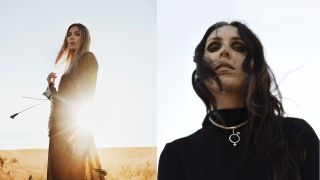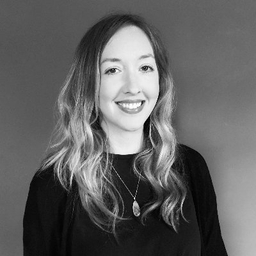Over the past decade, an influx of singer-songwriters has been infiltrating the metal world and reinventing the idea of what constitutes heavy music.
Artists like Chelsea Wolfe, Emma Ruth Rundle, A.A. Williams and Louise Lemón, not to mention Marissa Nadler, Anna von Hausswolff and Nicole Sabouné, are all embracing darkness in a raw, visceral way, pushing boundaries of genre and style.
Though none of them play metal, they have been embraced by metal’s fanbase, touring and collaborating with metal bands and playing festivals like Roadburn.
No stranger to Hammer since her official debut, The Grime And The Glow, in 2010, California-born artist Chelsea Wolfe has been at the forefront of this influx.
She grew up surrounded by country and folk, and while elements of these find their way into her transcendental and often eerie sounds, the influence of doom and goth are equally evident.
Her metal ties are strong: she’s supported A Perfect Circle, worked with the likes of Chino Moreno, Converge and Deafheaven, and her most recent album, 2017’s Hiss Spun, might be her heaviest yet.
“All these amazing, talented women are just blowing up their own boundaries and the boundaries society tries to place on them, making music that transcends genre, and creating a powerful energy in which someone drawn to the intensity of metal can find something to relate to,” Chelsea says.
“None of us necessarily love to be compared to the other,” she adds, “but it’s natural for journalists to group musicians together who might be on some kind of zeitgeist wavelength.”
While they express great respect and admiration for one another, Chelsea, A.A., Emma and Louise also feel frustration at being constantly compared as artists, particularly comparisons made about the actual sound of their music.
“I do recognise this trend, that there are women making music that isn’t metal who are being embraced by this world,” says Emma Ruth Rundle.
“But I don’t think in a music sense that we are similar at all. I can’t tell you how frustrating it is to be lumped in with the same few people again and again.
"I would like my music to be more like 40 Watt Sun, or Patrick Walker’s [other band] Warning: that sort of very raw, emotional music.”
For Emma, though, the metal world is not unfamiliar. After growing up in a musical household in Los Angeles – “My parents were really into rock music – the first music I have a memory of is Depeche Mode” – she started out playing in post-rock bands like Red Sparowes and Marriages.
But it’s her solo work, the most recent of which is her gorgeously affecting, raw and dark fifth album On Dark Horses, released last year, that she is best known for.
“I would say I am a metalhead,” Emma says, adding that sludge band Thou will be coming over the next day to work on their upcoming collaboration.
Emma thinks such collaborations, plus her musical CV, are part of the reason the metal world has embraced her.
“Maybe people who were tuned into heavy music continue to follow my work after those bands,” she says.
“I think I’ve been treated very well by the world of heavy music; I feel at home in that world. I think heavy content music is able to live alongside heavy sonic music,” she adds.
“Carrying heavy lyrical feeling and emotion can hold its place alongside bands that have heavy riffs and 20 amps.”
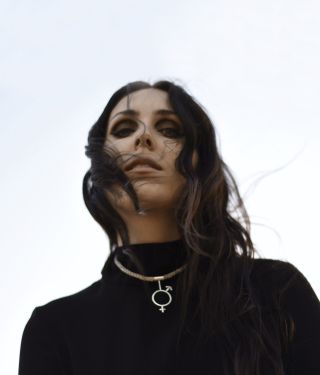
"My [debut] EP has been out for just over two months, and only twice has it been compared to a male artist,” says London-based singer A.A. Williams.
“It’s always compared to people like Chelsea Wolfe, Marissa Nadler, Emma Ruth Rundle. And that’s great – they’re fabulous artists. But no one can see past it.
“I’m not pissed off about it,” she says carefully, “but it is frustrating. When I played ArcTanGent festival, there was a sign for my show saying something like, ‘For Fans Of: Neurosis, Isis and Radiohead.’ And I just thought, ‘Thank you!’” she laughs.
“It’s great to be compared to fabulous female artists… but can we not focus on the music itself!?”
As a metalhead, A.A. is thrilled that her stripped-back, dark folk-tinged self-titled debut EP is being embraced by the metal world: “I love it!” she says. “It makes me so happy.”
She’ll also be opening for Amenra at their 20th anniversary acoustic London show this May. Before this, A.A. worked as a classically trained cellist – until fate intervened. She found a discarded guitar on her road in London with a sign ‘Please take me’ under the strings, and decided to take it on as a project.
“I had kind of resigned myself to, quite happily, performing for other people,” A.A. explains.
“But I had always felt a bit out of place because I was the person doing classical music who was also into Meshuggah or whatever. But now, I feel like not fitting in has finally brought me to this point.
“I can understand why people who listen to heavy music have embraced my music,” she continues.
“Even though it might not be as loud or as fast, I think in the softer sections of a lot of heavier artists, you’ll find similarities to what I’m doing; bands like Cult Of Luna, or Amenra. I can see why metal fans have been drawn to it. That,” she laughs, “and it’s gloomy and slow!”
Unlike the other artists, Swedish singer Louise Lemón doesn’t identify as a metalhead, but is happy to have found a home in that realm. Her musician father played bongos in 70s psychedelic band Yellow Dog, and she grew up in a household soundtracked by The Beatles, Prince and Swedish pop.
“I thought a lot about the kind of music I wanted to make,” explains Louise, whose foray into the heavier side came from bands like Nirvana and Soundgarden when she was a teenager.
“I’ve always had eclectic tastes: I’ve taken in a lot of pop, soul, rock… and it took me a while to find a place where I could write something really honest – that was actually coming out of me.” The result was her enchanting 2017 debut album Purge, and she’s just released her second, A Broken Heart Is An Open Heart.
“If we were male, we would not be compared to each other,” Louise says when asked if she thinks there is a new movement. “They’re awesome, but we are very different, and inspired by such different kinds of music.”
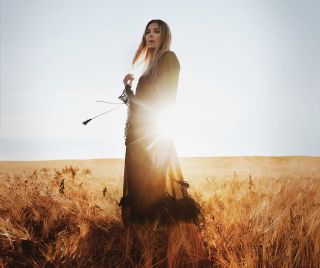
One term that has been floated recently in an attempt to categorise these artists is ‘death gospel’. It arguably started with Louise: a writer used the term reviewing one of her early live shows. She thought that it fit her music well, so she embraced it.
“It’s dark and heavy, but it’s still pop,” Louise explains. “I think it’s a good description, and I don’t feel it puts boundaries on me.”
It’s also been associated with A.A.’s music. “I had to Google ‘death gospel’,” she laughs. “To me, gospel equals truth. So I suppose you are looking at something that is not necessarily religious, but is raw, simple and true.”
Is it something that the others feel an affinity with, though? “That’s not a genre title I’m fond of,” says Emma. “Referring to ‘gospel’ feels like a misappropriation. Gospel has a complex history and evolution, cultural importance and is religious in nature – it’s worship music and to call on it as a descriptor seems a little frivolous to me.”
“I don’t love putting labels on everything, but I can see how someone might categorise my music that way,” says Chelsea.
“In the past I’ve called my music ‘dark folk’ or ‘experimental rock’n’roll’ because as a musician you get asked to describe your music all the time even though you want it to speak for itself!”
Is the need to label everything just another part of the job?
“I think genres are more useful for people who are listening than people who are creating,” says A.A. “It’s a useful comparison for somebody who doesn’t know the music.”
“People have to [label music] to convey it to someone who hasn’t heard it,” adds Emma. “Whether it’s ‘folk-gaze’, ‘metal folk’, ‘grunge shoegaze acoustic’, that’s something every musician just has to deal with.
"It doesn’t bother me: if anything I find it kind of cute or entertaining. I understand that it serves a purpose: I’m not concerned with trying to control how people describe my music.”
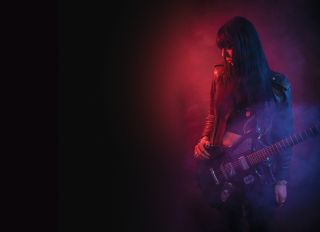
Ultimately, it isn’t an exact sound that these artists share. Instead, what links them,
along with captivating the metal audience, is their ability to really get under their listeners’ skin by personal topics in their lyrics and reaching out with a raw and often vulnerable sound.
“I’ve spent way too long pretending not to be raw and vulnerable,” says A.A. firmly. “And I thought, ‘Fuck it!’ I just want to do what feels right. And that’s what this is.
“A lot of my music is looking inward, and about grappling with a mind that doesn’t necessarily do what you want it to do,” she continues.
“I try to write fairly plainly, I think it’s important to have something that people feel an affinity with. I would say my songs are personal, and come across as quite raw sometimes. But not in a harsh way. I don’t want to write music that you don’t have a personal attachment to.”
Louise’s music examines one topic in particular, a subject she describes as “old as humanity”, and one that everyone can relate to: heartbreak.
“In a way, it is almost more intense than love,” Louise muses. “It’s also a feeling that’s hard to escape, and it’s hard to explain. So for me, a way to try to understand it is to write about it, because then you own it in a way.”
Emma’s fans have followed her journey through her intense lyrical themes that deal with family tensions, addiction, mental health, loss and death. Though intensely personal for her, they are themes she describes as “earnest human feelings”:
“For my solo work, I wanted to make music that was more intimate,” she explains. “Just very simple experiences of being human, and finding ways to deal with my set of issues.
“It’s what I do, and it’s the essence of what my work has become,” she says of her raw lyrics. “It’s strange to be exposed in some ways, but I think it’s my strength as an artist.
“I think that’s the main thing that [my listeners] connect with,” she says. “I don’t think people are listening because they think I have a nice voice.”
“I’m an empath, so I feel others’ energies very strongly,” Chelsea explains of her lyrics, that explore themes like spirituality, cycles of nature, dreams and sleep paralysis.
“Even when I write outside of myself, attempting to put myself in someone else’s shoes who is suffering, I’m still looking at it through the lens of my own experiences. Before I wrote music I wrote poetry. As I started setting the words to music, my purpose called to me. Writing has always been my way of connecting to the world.”
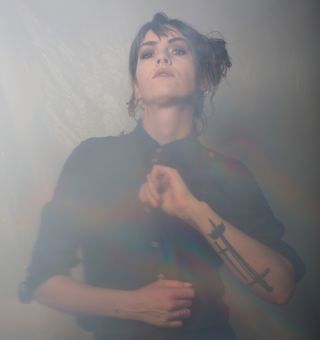
If more women are taking their place here and exploring darker themes, maybe it’s more of a change in society,” concludes Louise thoughtfully.
“We are letting ourselves do that, the music business is allowing it, and it’s not about just being a woman who’s ‘happy’ or trying to satisfy someone in some way.
“I don’t think it’s just about confidence: it’s about getting that space,” she continues. “You can have confidence and the best ideas, but if you don’t get space to speak, no one will hear you.”
“It’s natural that a group of people of a certain era will be inspired by the greats before, and so craft a kind of family of music, even if they don’t know the other exists, all while reflecting the current times,” adds Chelsea.
Whatever the reasons, the fact that there are more women exploring darkness in unique ways and finding a place in metal is in itself a cause for celebration.
“I suppose if you look at the fact that we’re even discussing this, it’s a good thing,” A.A. says. “Ten or 15 years ago, it probably wouldn’t be happening. Maybe we’ve just been grouped together for now: maybe later down the line we will separate ourselves.”
“The perspective of women and non-gender-conforming artists is a very important one,” Chelsea says, “and I think people see that.”
